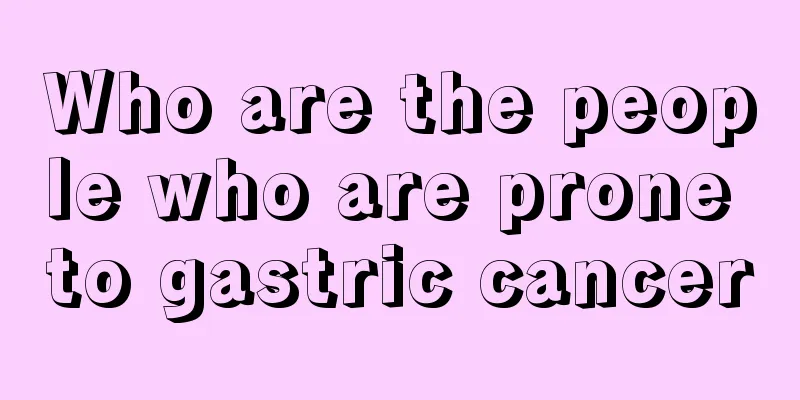What are the consequences of severe potassium deficiency

|
We must not ignore the problem of potassium deficiency, because the consequences of potassium deficiency on the body are relatively serious. People who suffer from long-term potassium deficiency will cause arrhythmia, abnormal nerve conduction, or weakness, cramps, abdominal pain, diarrhea, etc. It is recommended that people with potassium deficiency should have a reasonable and healthy diet and eat more foods high in potassium, such as potatoes, yam, kelp, black dates, etc. 1. People who suffer from long-term potassium deficiency will have symptoms such as arrhythmia, abnormal nerve conduction, and vomiting. When a large amount of water is lost (such as diarrhea and very heavy sweating), in addition to replenishing water, electrolytes must also be replenished. If only a large amount of water is replenished without replenishing electrolytes, symptoms of "exhaustion" such as weakness, cramps, vomiting and diarrhea will occur. 2. When potassium is deficient, the clinical symptoms are often masked by the primary disease. Potassium deficiency reduces neuromuscular irritability, causes general weakness, and reduces reaction ability. In severe cases, it may lead to flaccid paralysis and difficulty breathing. Digestive tract dysfunction, with anorexia, nausea, vomiting, and bloating. In severe cases, there may be intestinal paralysis and intestinal obstruction. Potassium deficiency increases myocardial irritability and causes arrhythmias, atrioventricular conduction block, and even atrial and ventricular fibrillation. 3. Potassium is widely distributed in natural foods and is generally not lacking in daily diet. If the diet is unbalanced, with a preference for meat, eggs, polysaccharides, and salt, and less grains, beans, vegetables, and fruits, potassium intake will decrease. Improper cooking, removing vegetable juice when making stuffing, and removing vegetable soup when eating vegetables, is equivalent to eating "low-potassium vegetables" and invisibly losing a large amount of potassium. Chronic diseases may lead to poor potassium absorption, diarrhea, vomiting, and some diuretics can cause excessive potassium loss. The production of glycogen requires potassium. When a large amount of sugar is consumed, the potassium concentration in the blood drops rapidly. Patients with uncontrolled diabetes often lose a large amount of potassium in the urine, so potassium supplements are needed. 4. Foods high in potassium include fresh broad beans, potatoes, yam, spinach, amaranth, kelp, seaweed, black dates, apricots, almonds, bananas, walnuts, peanuts, green beans, soybeans, mung beans, edamame, lamb kidneys, pork kidneys, etc. A high-potassium diet is not suitable for everyone. In cases of acute or chronic renal insufficiency, oliguria or anuria, potassium cannot be excreted in time. In cases of shock or adrenal insufficiency, not only can potassium not be supplemented, but potassium intake must be controlled. |
<<: Why does the human body lack potassium
>>: How to wash enoki mushrooms cleanly
Recommend
What blood type can be transfused with type O blood?
As we all know, there are several types of human ...
The first choice hospital for colorectal cancer treatment
Good hospitals can really help us solve some of t...
Can rectal ulcer lead to rectal cancer?
Actively cooperating with the doctor's treatm...
Be sure to pay attention to these after gallstone surgery
Gallstones are a relatively common physical disea...
What are the methods to check fibroids
Although fibroids are a frightening disease, ther...
What is the shelf life of toilet water and how to use it better
In order to prevent heatstroke and cool down in t...
My skin itches after taking a shower
Some people have very high demands on themselves,...
What to use to detoxify after eating bad sugarcane
Sugarcane is a type of plant that many children l...
How much does chemotherapy for bladder cancer cost?
Bladder cancer is a common malignant tumor in lif...
What should I do if my skin wound becomes festering?
Skin injuries are a very common problem. We need ...
How long can I live if esophageal cancer recurs
Esophageal cancer is a common malignant tumor of ...
Introduction to four types of food that may induce esophageal cancer
According to the latest medical research, the cau...
Will gastric bleeding cause bloody stools?
Gastric bleeding is a very dangerous disease. Mil...
What is the cause of the lump under the skin on the back?
There are many reasons for skin lumps, but most p...
Blood viscosity measurement
With the continuous improvement of social life, p...









